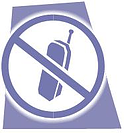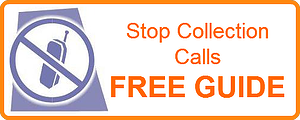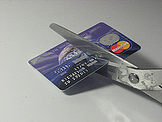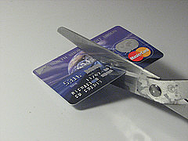It seems as if debt collectors can get away with about anything.
The Fair Debt Collection Practices Act is supposed to protect consumers, yet few people know anything about it.

Most collectors are trained professionals who will:
- call you several times a day
- call at early, late or even at work
- berate you for the debt you owe
- make false statements about their intention to bring legal action
- call family or neighbors about your situation
And these are just a few of the unlawful, yes, UNLAWFUL tactics used by most collection agents.
The Fair Debt Collection Practices Act (FDCPA) spells out what a collector may or may not do, and even though you do have rights and it may be possible to bring a lawsuit against the collector for violating those rights, most people just don't have the time or money to proceed.
So, what can you do? Here's some tips that will help:
1. Stopping collection calls at you home
The FDCPA states that if a collector receives a letter requesting that all calls stop concerning the collection of your account, they must STOP!
To get more information on how or what to do, click here.
2. Stopping collection calls work
Not only is getting collection calls at your place of employment embarrassing, it may also get you in real trouble with the boss!
You may be able to stop the calls at work by simply telling the agent that your employer does not permit calls to the employees.
Although this may work, you should also state in your letter (above) that this request also includes your place of employment.
HOWEVER, if you have not receive calls at work yet, then don't request it in your letter (above) as it tells the agency that you hav a job! You don't really want them to know that for as long as possible.
3. Most of the letters you receive from a collector state something like:
"unless you dispute the validity of this debt in the next 30 days, the debt will be deemed valid".
Even if you think the debt is valid, it doesn't hurt to request validation.
WHY? Because the FDCPA states that if you send a written request for validation, the collector must cease all contact until the debt is validated by a statement or some other form of validation.
If you owd much more that you can repay, it may be time to seek professional help.
Programs such as Debt Management, Debt Settlement, or even Bankruptcy may provide you with a way to finally put an end to the harassment from collectors and get completely out of debt once for all.
For a FREE, Financial Analysis, click here.



 Need help putting a stop to collection calls? Try this:
Need help putting a stop to collection calls? Try this:

 a listing of assets and liabilities at the time the debt was canceled. You may include Form 982 or a simple cover letter claiming insolvency."
a listing of assets and liabilities at the time the debt was canceled. You may include Form 982 or a simple cover letter claiming insolvency."


 What is the best debt elimination plan?
What is the best debt elimination plan? A prospect wrote, "Christmas is over and I charged too much!" Can you help with debt settlement advice?
A prospect wrote, "Christmas is over and I charged too much!" Can you help with debt settlement advice?

